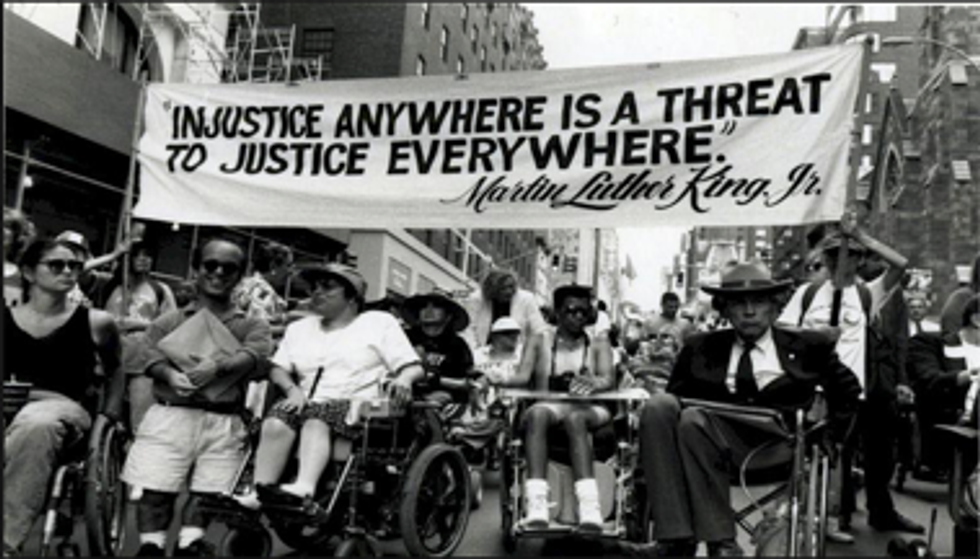Note: This is a summary of my paper on the The Americans with Disabilities Act (ADA): The Tipping Point. I hope you learn a lot from this, and if you have any questions, or want access to the full paper, please do not hesitate to email me.
To start:
What is a disability?
•A disability is a physical or mental impairment that substantially limits one or more major life activities.
•Some examples of disabilities:
•AIDS, and its symptoms
•Epilepsy
What does a disability look like?
Historically, disabilities were seen as limitations. People with disabilities were looked upon as inferior (to able-bodied people) and were pitied and patronized.
What did this cause?
•Discrimination e.g. exclusion from mainstream society, intentional and unintentional segregation.
The Types of Acts Established to Accommodate People with Disabilities:
•The Americans with Disabilities Act (ADA)
The Americans with Disabilities Act (ADA)
•The Americans with Disabilities Act was signed into law on July 26, 1990 by President H.W Bush. This act was comprised of giving people with disabilities equal rights to work, transportation, government services, and housing. It was introduced in Congress by Edward Kennedy and Tom Harkin, who were Democrats, and Bob Dole, a Republican (DREF.org).
•The initial author, Tony Coelho, a former congressman in 1942, reported that he suffered from epilepsy as a youth, which was used as a factor in denying him employment. Hence, this had a great influence on the creation of the act.
So What Was the Tipping Point of the ADA?
•Despite all the acts geared towards people with disabilities, discrimination was still very common.
•For instance,a study claimed that “two-thirds of employable, working-age, disabled persons in the United States had no jobs, and many of those who were employed held a job far below their actual capabilities" (Batten 460).
•Due to this, many people with disabilities had to rely on government assistance and welfare instead of working.
Skepticism Behind the ADA
•Business owners feared of bankruptcy
•Fear of lawsuits
What the ADA has Helped Accomplish
•It has helped give people with disabilities a better quality of life, through accessibility, housing, and employment.
•It has also helped businesses save money, and adapt to the act more easily.For example, the changes that could be made to accommodate those with disabilities cost less than $100 (Center for an Accessible Society 1).
How We Should Treat People With Disabilities
•Remember that they are just as human as you are.
Thank You.









 The minimum wage is not a living wage.
StableDiffusion
The minimum wage is not a living wage.
StableDiffusion
 influential nations
StableDiffusion
influential nations
StableDiffusion












